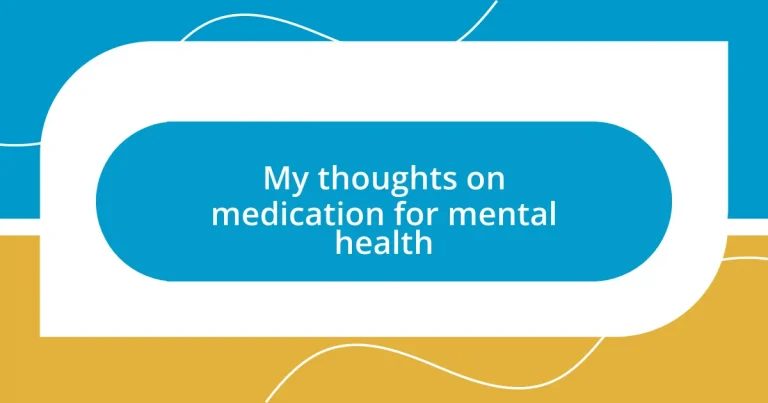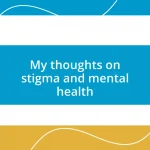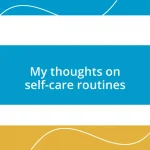Key takeaways:
- Understanding mental health medications involves recognizing their role in balancing brain chemistry, accepting a potentially lengthy trial and error process, and the importance of communication with healthcare providers.
- Potential side effects of medications such as nausea, fatigue, or changes in appetite should be acknowledged and managed with openness and support to navigate the treatment journey effectively.
- Alternative treatments like mindfulness, yoga, and herbal supplements can complement traditional medications, but caution is advised regarding interactions; effective medication management strategies such as reminders and keeping an organized chart can enhance the treatment experience.
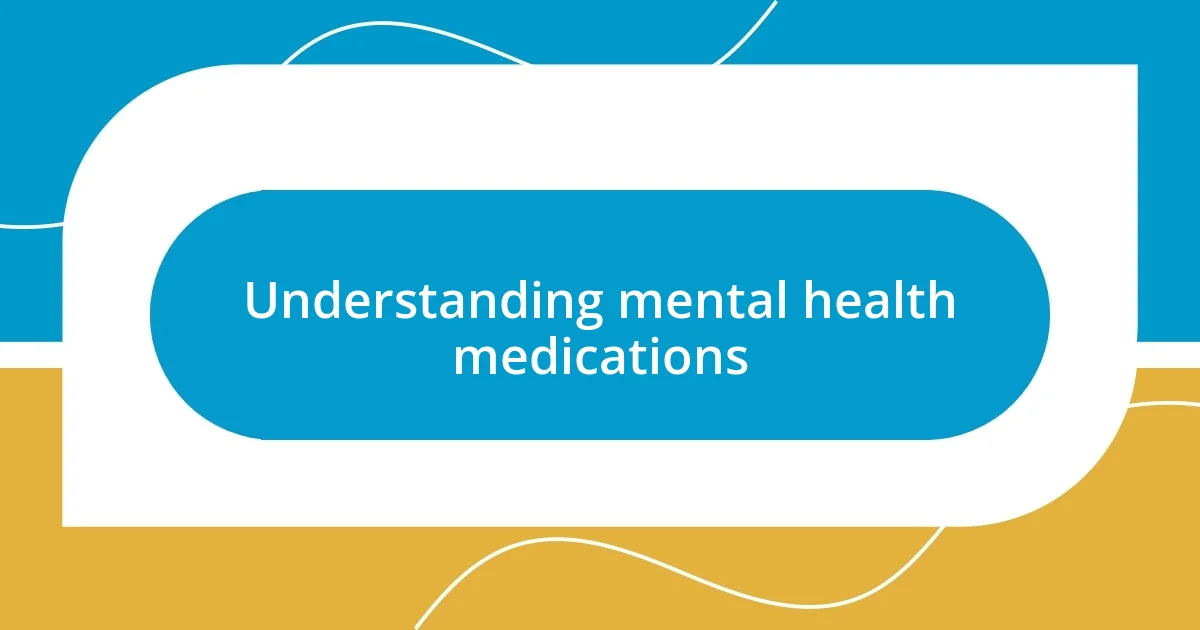
Understanding mental health medications
Understanding mental health medications can feel overwhelming at first. When I first started exploring my options, I was flooded with questions. How do these medications actually work? I learned that they influence brain chemistry, helping to balance neurotransmitters, which are the chemicals that impact mood and behavior.
I remember feeling a mix of hope and fear when I was prescribed my first antidepressant. The thought of relying on medication was daunting, yet there was a flicker of optimism about regaining control over my emotions. It’s essential to understand that these medications can take time to show results, and sometimes the journey involves trial and error.
I can’t emphasize enough how vital it is to have an open conversation with your healthcare provider about potential side effects and expectations. It’s not just about finding the right medication; it’s about finding the right fit for you, your lifestyle, and your unique mental health journey. Have you thought about how your daily routine may need to adapt during this process? That flexibility can make a significant difference on the path to feeling better.
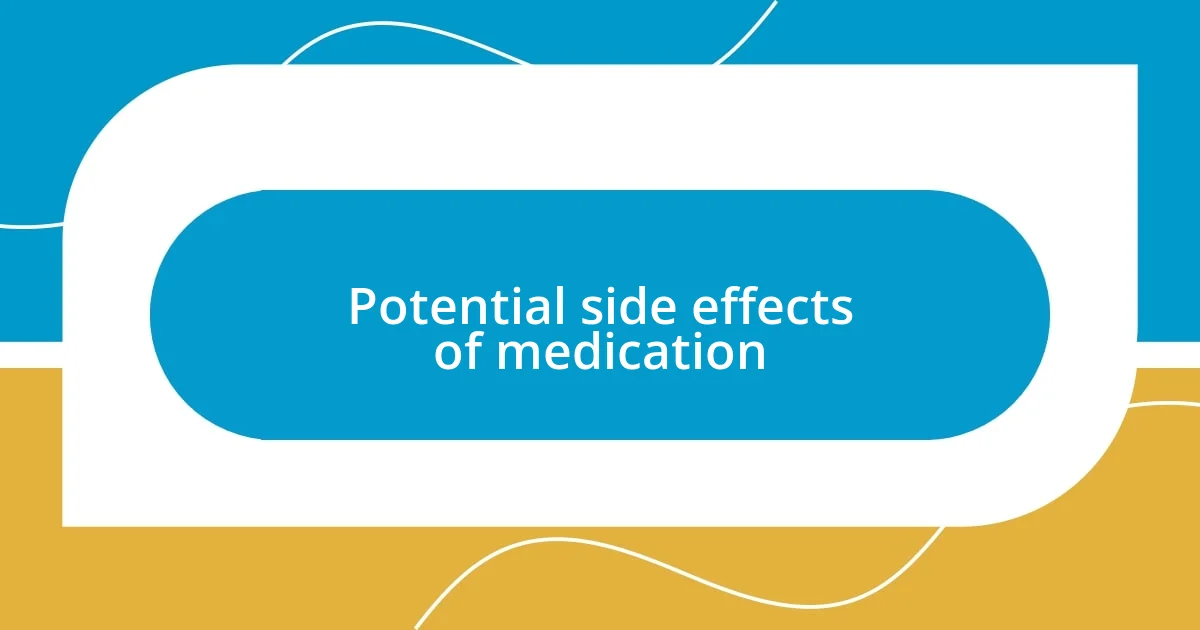
Potential side effects of medication
Potential side effects of medication can often feel like a weighty topic. When I first started my journey with antidepressants, I was bracing myself for anything. I vividly remember the ongoing battle in my mind: the desire to stabilize my mood clashing with the fear of potential side effects. While many people experience little to no adverse effects, it’s important to be aware of what could occur so you can navigate this portion of your treatment with honesty and understanding.
Here are some common side effects I’ve come across during discussions and personal experience:
- Nausea or gastrointestinal upset
- Fatigue or drowsiness
- Changes in appetite or weight
- Sleep disturbances, such as insomnia or vivid dreams
- Dry mouth or increased thirst
Understanding these potential side effects helped me manage my expectations. I realized it was okay to feel a little uneasy—embracing those emotions is part of the learning process. Each side effect is a reminder that I’m on a journey tailored for me, and with the right support, I can make informed decisions about my mental health.
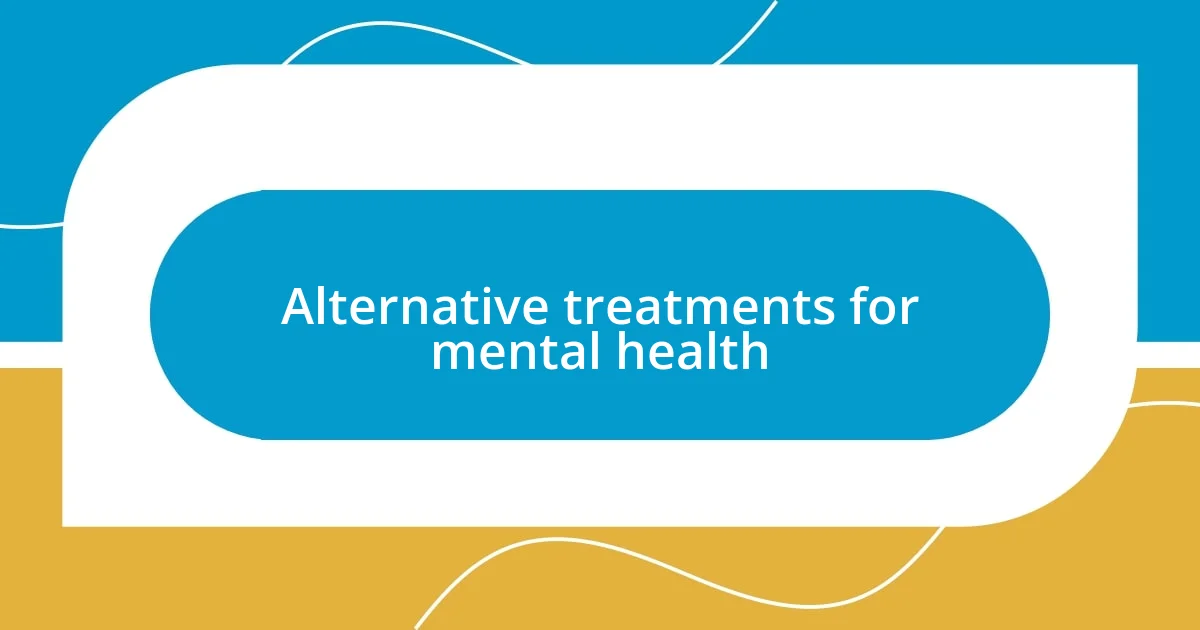
Alternative treatments for mental health
Alternative treatments for mental health can offer unique paths to healing. From my experience, exploring options like mindfulness meditation and yoga provided me with tools to manage anxiety. I found that these practices often helped ground me in the present moment, a refuge from racing thoughts and worries.
Another avenue I discovered was the world of herbal supplements, such as St. John’s Wort. This option sparked curiosity in me, as I wanted to understand how nature’s remedies could supplement my mental health regimen. I learned that while these can be beneficial, they also require caution, as they may interact with prescribed medications. Have you ever tried balancing natural remedies with traditional treatments? It certainly made me more mindful of my choices.
| Alternative Treatment | Description |
|---|---|
| Mindfulness Meditation | A practice that encourages being present, reducing anxiety and improving emotional regulation. |
| Yoga | A physical and mental practice combining postures, breathing, and meditation for stress relief. |
| Herbal Supplements | Natural remedies that may enhance mood, but require careful consideration of interactions with medications. |
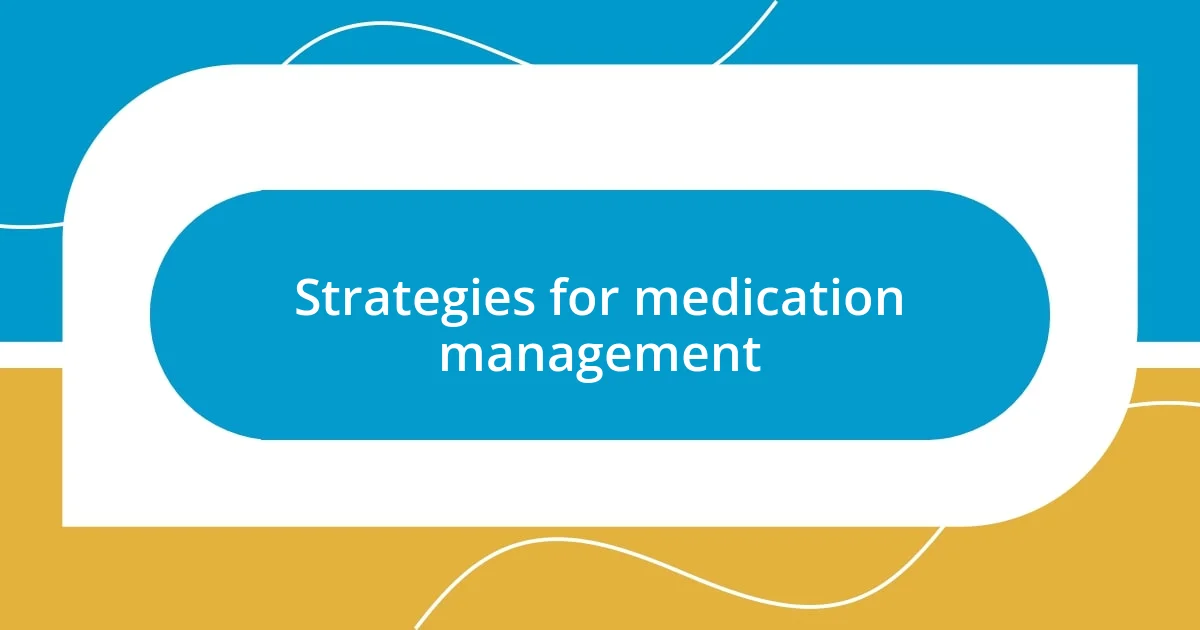
Strategies for medication management
Managing medication effectively requires an organized approach. I remember feeling overwhelmed with my first prescription. To make things easier, I created a simple chart with my medications, dosages, and times to take them. This strategy not only helped me track my routine, but it also gave me peace of mind when I could visibly see how I was progressing each day.
Another helpful strategy I’ve adopted is setting reminders on my phone. It might sound trivial, but those little beeps have been life-savers. The consistency of taking medication at the same times each day has turned into a comforting ritual for me, reinforcing my commitment to the process. Have you ever felt that sense of accomplishment when you check off a task? That’s exactly how I feel when I mark my medication off my list.
Finally, don’t underestimate the power of open communication with your healthcare provider. Sharing my experiences, both good and bad, made our discussions richer and more productive. I’ve learned that asking questions about my medication not only clarifies dosages or side effects, but it also fosters a deeper understanding of my treatment path. It makes me wonder—how often do we truly engage in these conversations that can empower our health journeys?
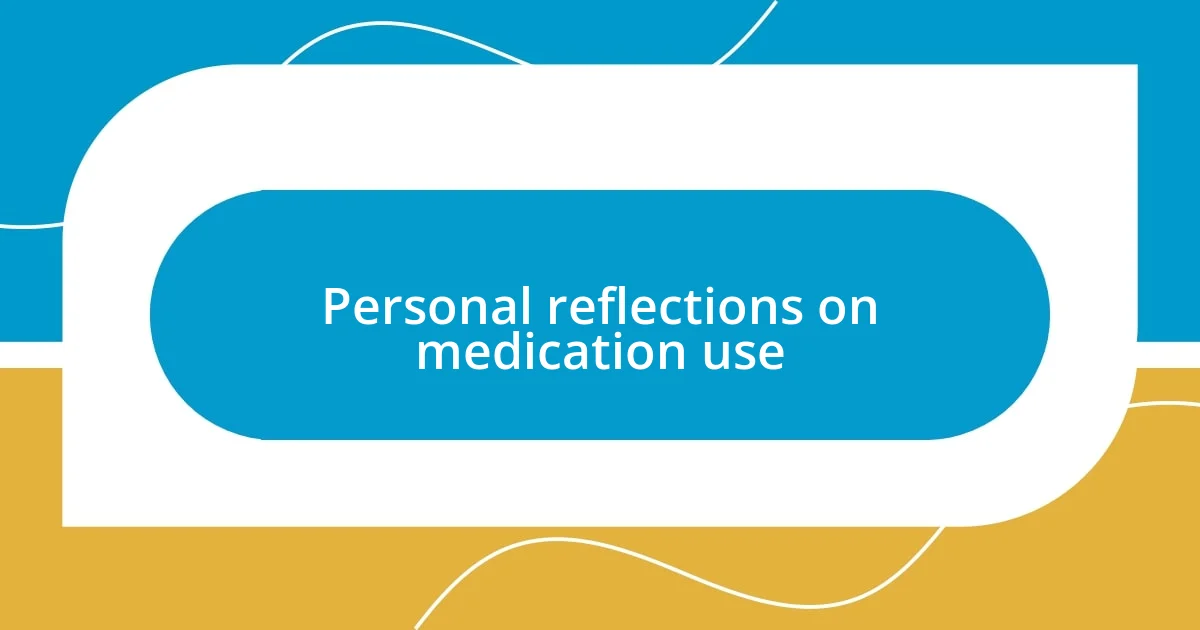
Personal reflections on medication use
When I first started taking medication for my mental health, I remember feeling a mix of hope and skepticism. I often pondered, “Will this really help me?” It took time to find the right balance, and through trial and error, I discovered how these prescriptions could sometimes feel like a safety net. However, I also learned that relying solely on medication without addressing underlying issues was never the complete answer.
There was a moment when I experienced side effects that honestly rattled me. I remember feeling drained and disconnected, which left me questioning whether I was going in the right direction. In those instances, open conversations with my doctor became crucial. They reminded me that it was okay to express concerns and that adjustments could always be made. It leads me to ask: how comfortable are we really discussing our struggles with medicine?
Reflecting on my journey, I realized that medication is just one piece of the puzzle—the piece that sometimes allowed me to see the bigger picture. It provided clarity and stability, enabling me to engage in therapy and personal development more effectively. I think about how this aspect of treatment often gets overlooked. Have you ever considered how medication might empower your progress rather than define it? For me, it was a significant revelation on my path to mental health.












